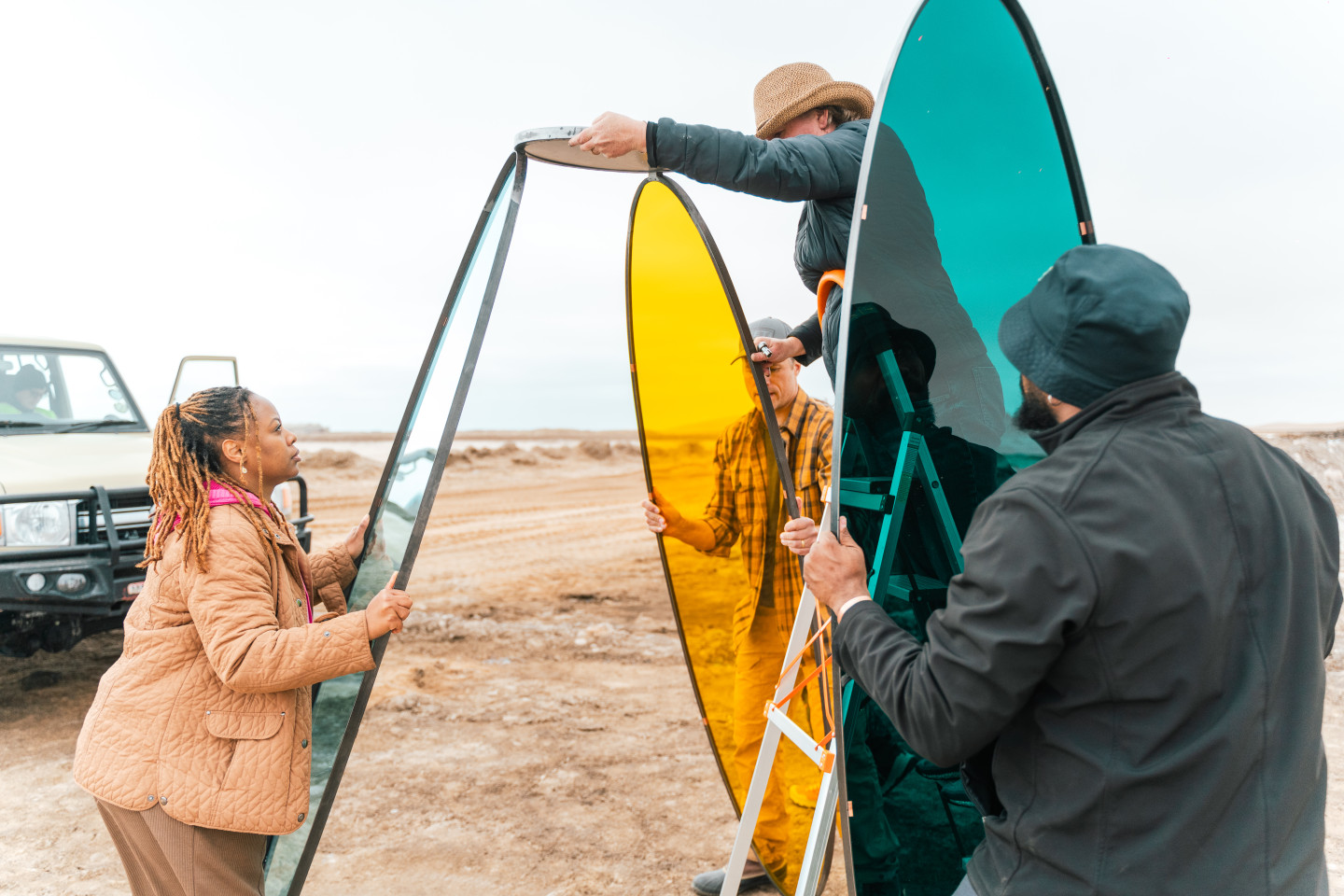
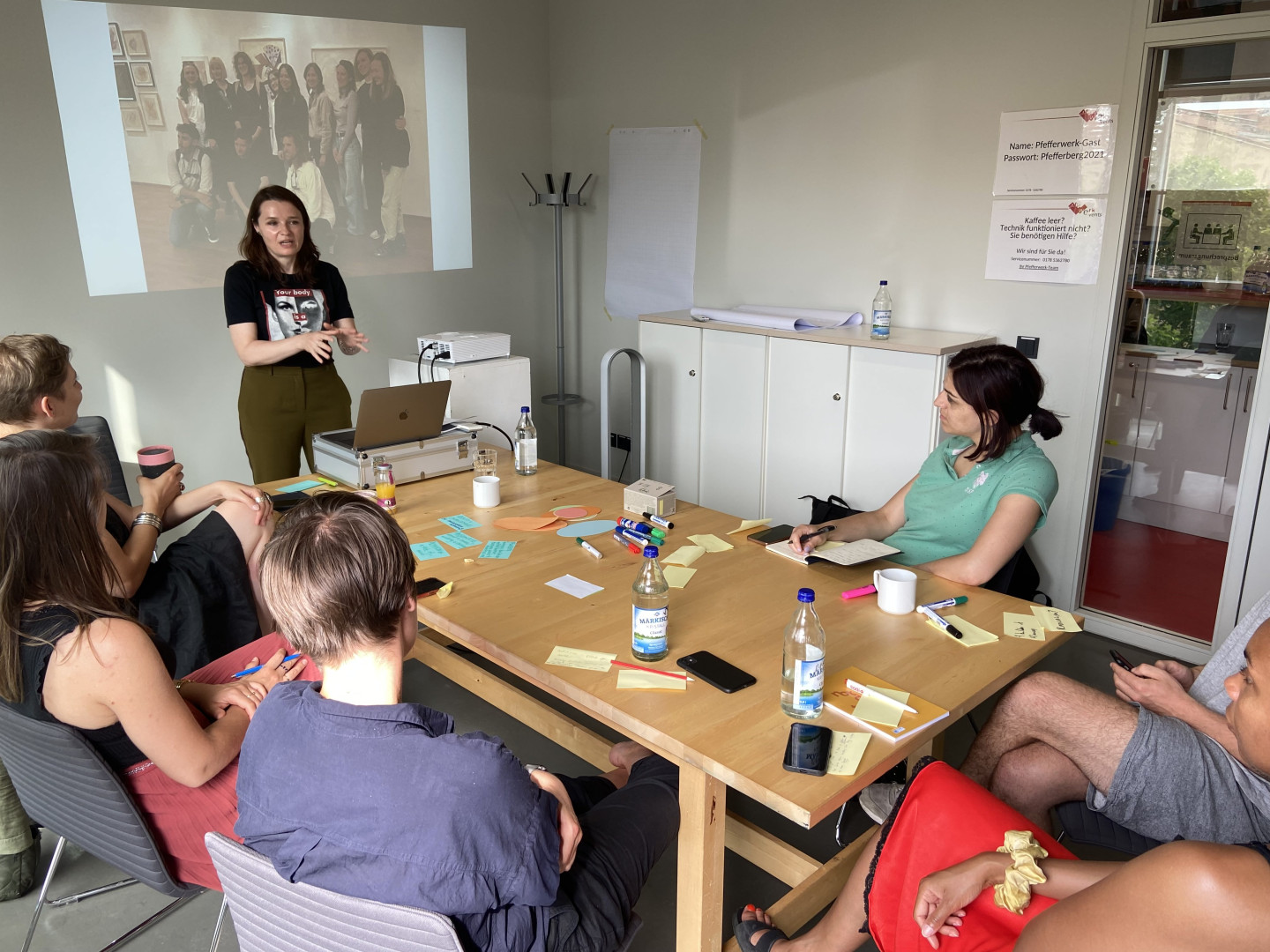
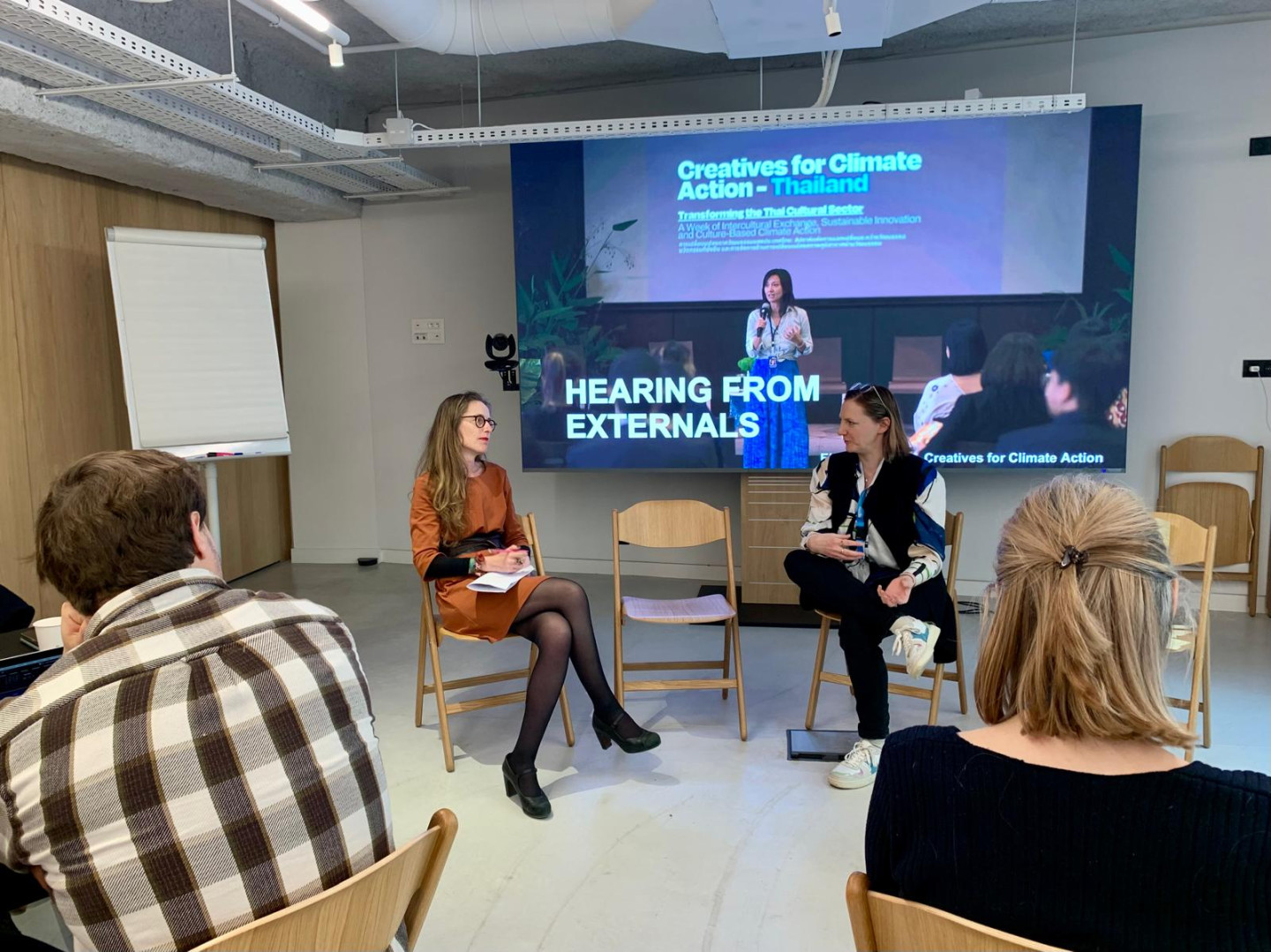
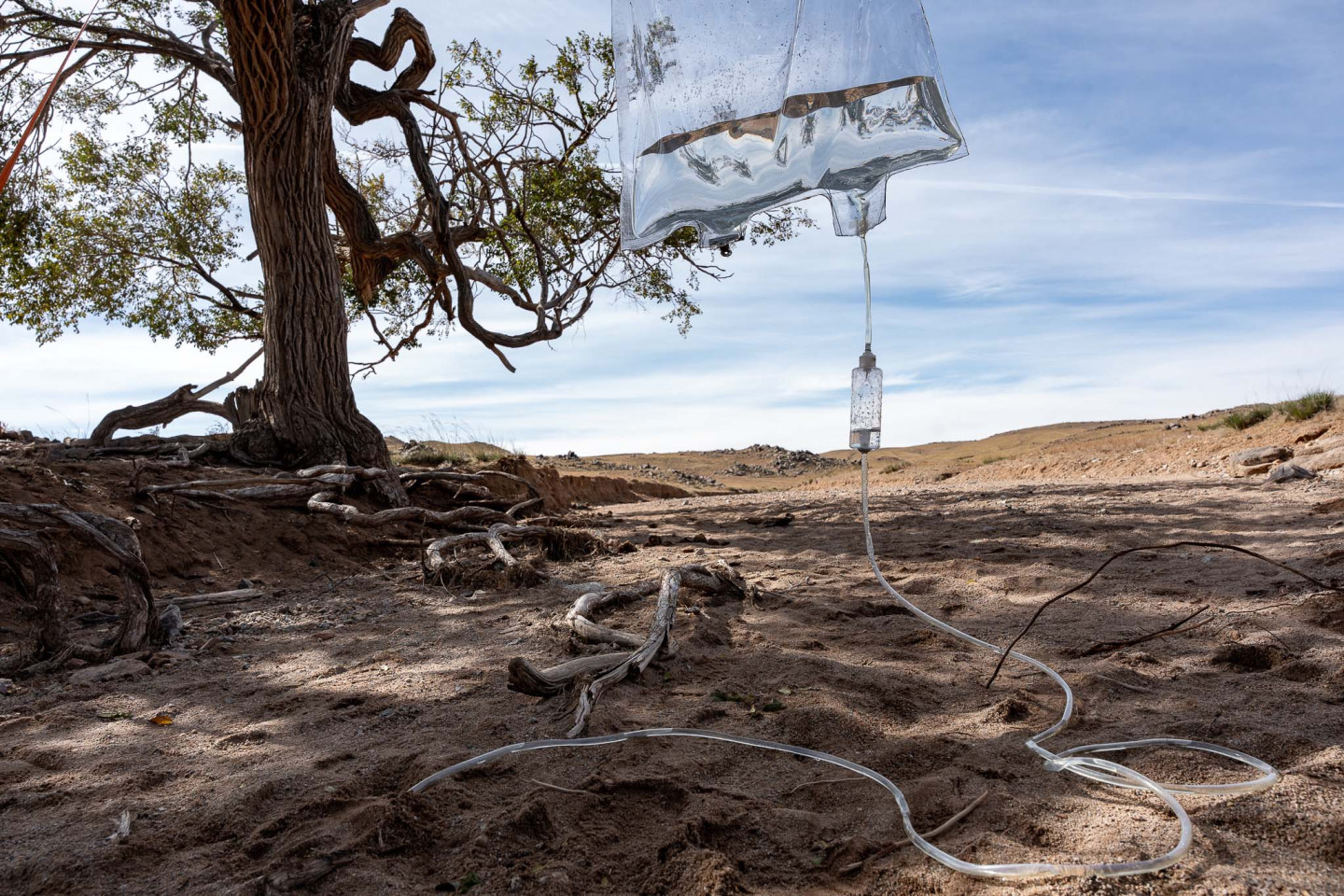
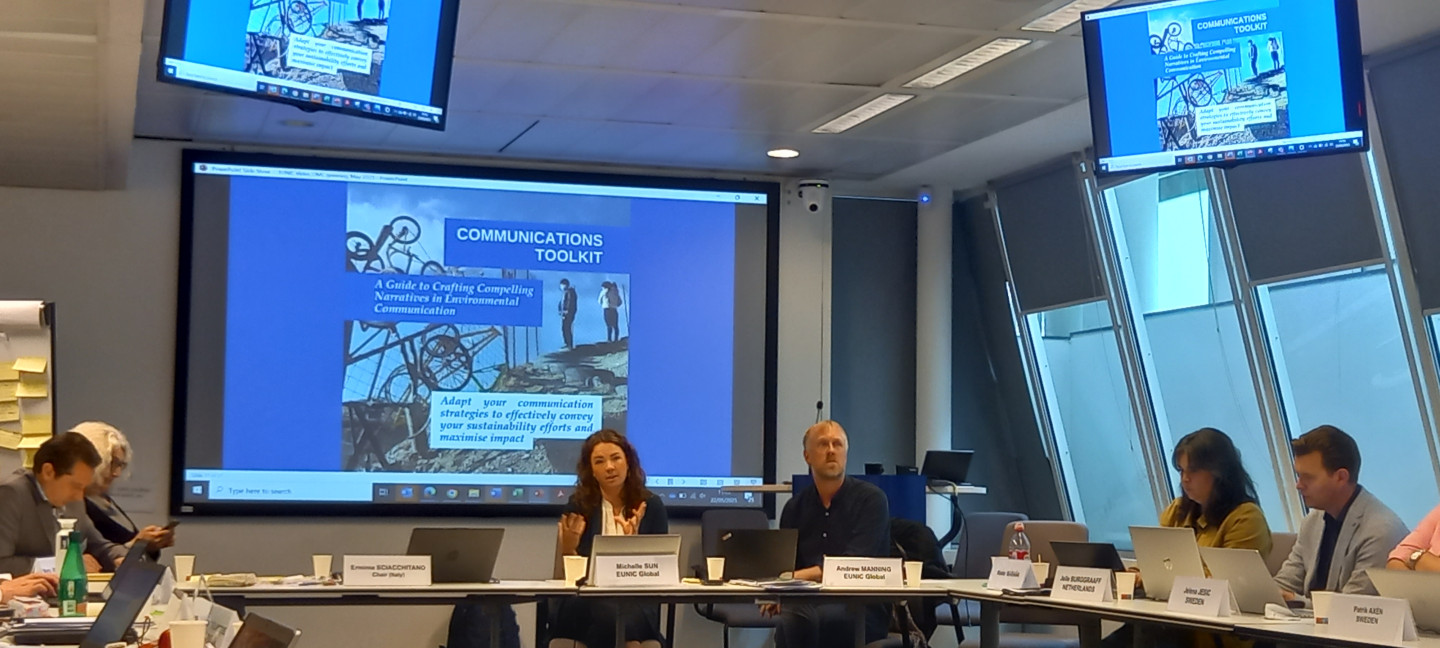
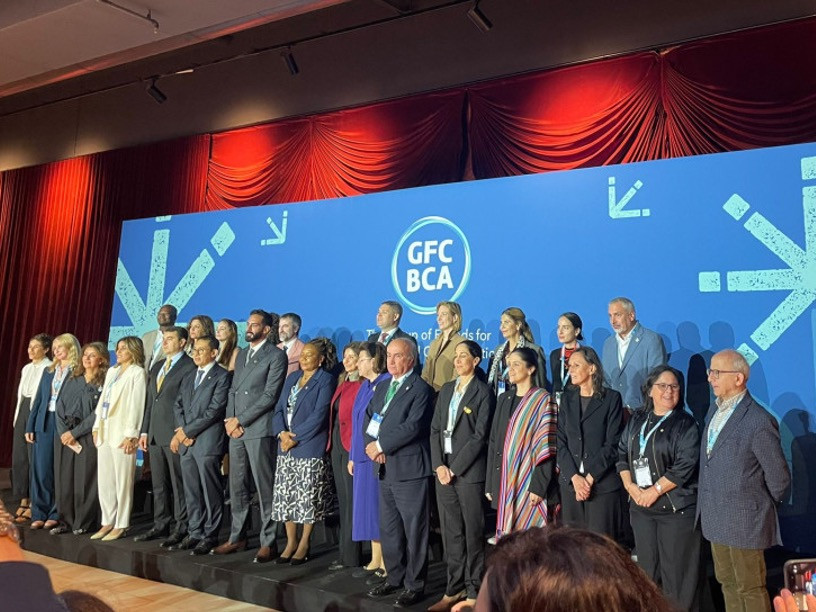
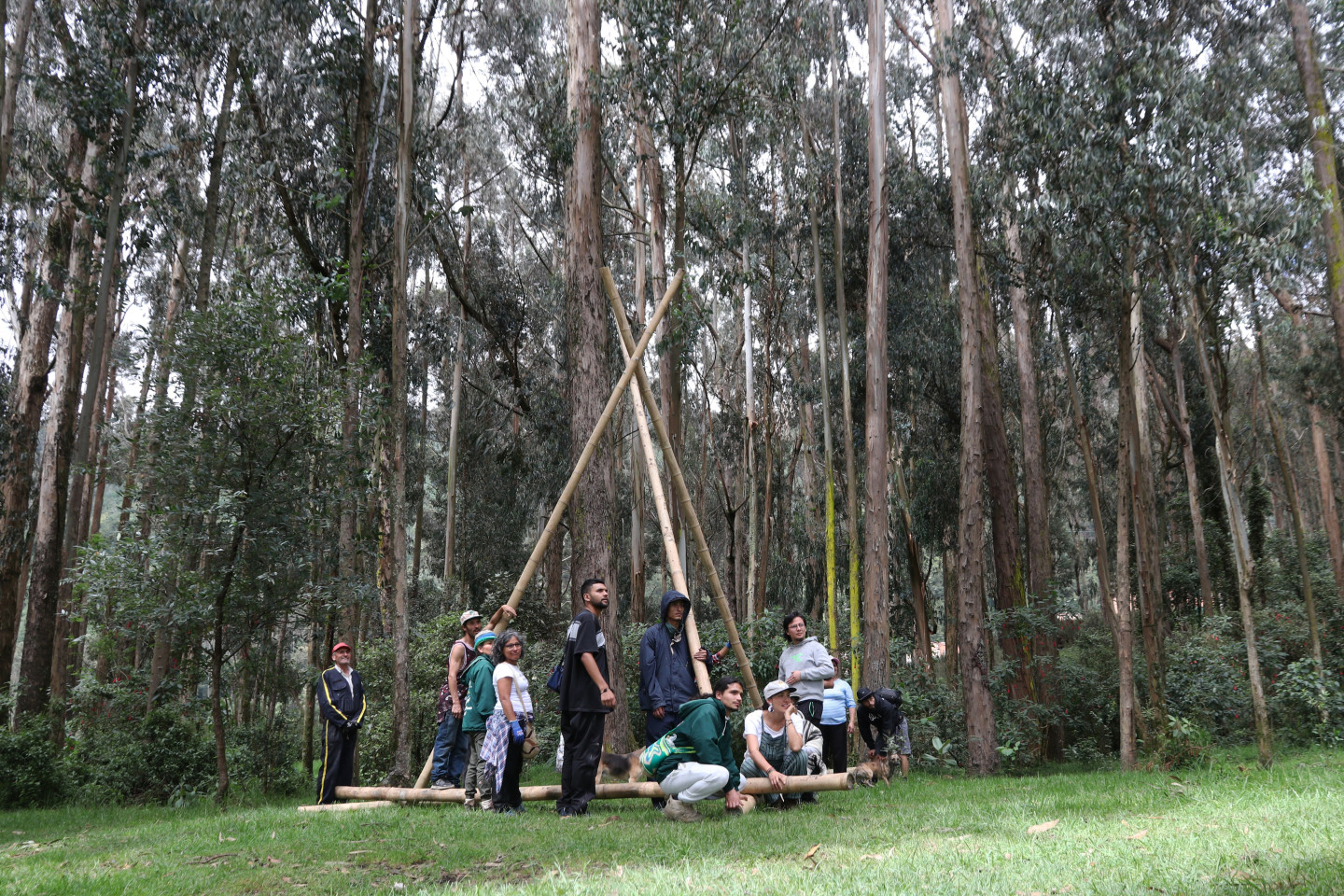
EUNIC's role in shaping a more sustainable future: the power of networked action
As COP30 wraps up in Belém, we reflect on EUNIC's role as a network in supporting climate action by bringing people, ideas, and culture-based climate solutions together.







Michelle Sun, Climate Lead, EUNIC
Warren O’Donnell, Communications Manager, EUNIC
We have seen an increased recognition of culture’s role in climate action over the years, and yet it is still not where we would like it to be: at the heart of the global discussion on climate.
The climate crisis is a cultural crisis. Several EUNIC members have been very active on sustainability and climate action for some time now, often on a bilateral basis. It has become increasingly clear, however, that the climate crisis is a global challenge that requires a collective effort. This is where the opportunities for EUNIC’s contribution, as a network, really began.
Many fantastic culture-based climate initiatives exist already. Our mission, at EUNIC, is not only to be part of this existing movement but push it further. As European cultural institutes, we have a responsibility to address the global climate crisis, and as an international network with a global presence and close ties to cultural and civil society actors, we have important assets to bring. By working as a collective, we are greater than the sum of our individual parts and together we can make a meaningful and impactful contribution to the climate action movement.
EUNIC’s engagement with climate action has shown how powerful collective cultural work can be... Being part of this network encourages us to think beyond our own daily work and to see how culture can become an active driver of change.
Katarzyna Zalaszewska Polish Institute in Bucharest
The power of networked climate action
An important early milestone in EUNIC’s climate journey was the Climate Culture(s) Creative Lab in Berlin, where emerging leaders from across the EUNIC network were convened to explore structural and practical solutions for their organisations and for EUNIC as a whole.
The lab resulted in a declaration to the heads of EUNIC member organisations and a set of recommendations to guide our future practices. Following the Berlin Lab, EUNIC commissioned a dedicated set of tools for cultural relations practitioners - operating at both headquarters level and internationally - that we brought to life through online and in-person workshops and demonstrations.
The Climate Culture(s) Creative Lab allowed me to see how issues of nature, climate and the environment can be meaningfully connected to our work as cultural practitioners... I brought this perspective back to our EUNIC Egypt cluster, where I initiated the idea of a sustainable festival… SABBART, a direct outcome of the Lab — showing how EUNIC exchanges can translate into collective and creative action at local level.
Carolin Vonbank Deputy Director, Austrian Cultural Forum Cairo
Translating commitment into concrete action
In recent years, the EUNIC Cluster Fund call for proposals has featured an optional focus on sustainability and climate action. This focus resulted in a rich variety of EUNIC-supported projects addressing the climate crisis through the lens of different art forms, from diverse perspectives and in innovative formats. Many EUNIC clusters also made climate action a priority within their own strategies and have found creative ways to collaborate with local partners on this issue.
By taking action rooted in local contexts and addressing community needs, EUNIC clusters act as vital bridge between local realities and a collective global response. Through this cultural relations approach, we can practise mutual learning and fair, respectful collaboration rooted in and sensitive to local contexts.
The other side of the coin is the coordination and exchanges between EUNIC members’ at headquarters level. This includes convening working groups and coordinating expert exchanges, such as the Knowledge Sharing Workshop on climate action we held in Paris, as well as coordinated efforts around major policy moments such as COP summits.
I greatly appreciate the benefits of networked collaboration: mutual support, such as access to the Blue Zone at COP, setting topics in international cultural policy discussions, or sharing knowledge. Placing topics jointly is not only more efficient and effective but it also creates significantly greater impact. The sense of community provides strength, hope, courage, and resilience.
Laura Zebisch Sustainability Manager, Strategy Department, Goethe-Institut Headquarters
Bringing a range of voices into the international conversation
With the support of our members, EUNIC has engaged in several high-level policy fora, such as a thematic webinar on climate action led by UNESCO to inform a G20 summit. For the first time, this year EUNIC is coordinating a joint approach to COP30 in Belém, having joined the Group of Friends of Culture-Based Climate Action as an observer.
Through this kind of networked action, we exchange knowledge and build capacity to strengthen our collective voice. By bringing together diverse perspectives and experiences from across our global network, we reinforce our position and call to action with concrete examples. Herein lies one of EUNIC's greatest strengths – bridging the people-to-people connection on the ground with a strong, collective response at international level.
As a network, we act as a platform through which smaller voices can be amplified, while leveraging the platform of larger organisations. The network serves as a bridge between local implementation on one hand and global advocacy on the other, enabling a dialogue between the two.
EUNIC enables us to share, present and discuss our research findings with colleagues working around the globe, bringing in their perspectives, challenges and needs... The cooperation within EUNIC amplifies this knowledge and gives us the opportunity to reach other networks on the ground, but also within Europe.
Sarah Widmaier Scientific Coordinator Research Programme on Culture and Foreign Policy, ifa - Institut für Auslandsbeziehungen
Looking to the future
Much has already been done by climate actors to demonstrate why culture must be an integral part of climate solutions, with countless projects around the world showing how culture and climate intersect. Unfortunately, this is not yet reflected in international policy. As a network, and as individual member organisations, we have a collective responsibility to take action and find innovative solutions to the climate crisis through our work.
Our task has been to create platforms to articulate and then and act together on the role, responsibility and reach international cultural relations have as part of global climate action. We continue our journey, mainstreaming climate action in our wider programmes and strategic framework, and increasingly bringing concrete international cultural relations practices, learning and advocacy into key fora at the EU or UN level.
Andrew Manning EUNIC Director
There is still a long way to go and we will continue to work with our members to develop a coordinated and meaningful approach to climate action, one that is sensitive to local needs and contexts, while providing a platform for exchange and mutual learning.
By doing so, we hope to strengthen the recognition of culture as an essential part of the climate action puzzle.
